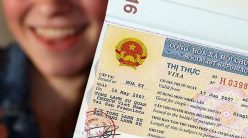The district court said the provincial court kept it, and the provincial court did not return the file, making it difficult to accept the case again.
Ms. S. (former accountant of a commune in Krong No district, Dak Nong) has just sent an application to the People’s Court of this province to complain that the People’s Court of Krong No district has not returned the original dossier (including the petition and attached original documents). for you. Meanwhile, the district court asked her to return these documents before accepting the case.
The district court said the provincial court
In March 2017, Ms. S. filed a lawsuit against the president and vice president of the commune, demanding to refund her more than 38 million VND. According to her, the president and deputy had directed her to spend the above amount wrongly, so they had to refund it. Then the district People’s Court issued a notice to return the application on the grounds that the plaintiff did not have the right to sue.
Ms. S. complained about the return of the application, but the district People’s Court maintained its position. Ms. S. complained to the People’s Court of Dak Nong province and was resolved in the direction of acceptance. According to the provincial court, the return of the application by the district court is groundless, so the decision to respond to the complaint and the notice of return was canceled.
The People’s Court of the province also requested the district chief judge to hold a meeting to review and draw experience for individuals who made mistakes in returning wrong petitions and improperly settling complaints. The provincial court requested the district level to receive back the petition and accompanying documents of evidence from Ms. S. to handle the case.
After this settlement result, Ms. S. waited forever but did not see the district People’s Court invite or send a notice to accept the case. She directly went to the court to ask, and was answered that she had to re-file a new lawsuit and attached documents to accept it. While according to Ms. S., the original file of the district court is still kept and has not been returned to her. When the court issued a notice to return the application, she only exercised the right to appeal, but did not come to collect the file.
Therefore, on July 13, Ms. S. petitioned the People’s Court of Krong No district that the court had not returned the file, so she no longer had the documents to make a new lawsuit. Eight days later, the chief judge of the district People’s Court replied in writing to Ms. S. that before she complained to the provincial People’s Court, the district had transferred all the files (the petition, the attached documents) for settlement according to its competence. The provincial People’s Court has resolved the results, so the file is being kept at the provincial People’s Court. Therefore, if you want to file a lawsuit, you must file a new application.
What does the law say?
Ms. S. was annoyed: “The request of the district People’s Court makes it difficult for me because I only have one set of documents that I have submitted to the court. I don’t understand the regulations on transferring files between courts, but the court pushing back and forth is making it difficult for people. I am waiting for a satisfactory answer from the Provincial People’s Court…”.
Although the case is small, the legal issue is how does the law regulate the return of petitions and lawsuit files? Which court must return the case to Ms. S. to exercise the right to further sue?
Lawyer (LS) Tran Duc Phuong, Ho Chi Minh Communist Youth Union, analyzed Article 168 of the CPC stipulating that when returning a lawsuit petition, the court must attach a document clearly stating the reason for returning the petition. According to Clause 2, Article 192 of the CPC, when the court returns the lawsuit petition, the enclosed documents and evidences must be returned to the involved parties.
Therefore, when returning the lawsuit petition, the court must copy and store at the court the lawsuit petition and accompanying documents and evidences to serve as a basis for settlement of complaints and petitions, if any. In this case, the District People’s Court has not yet paid Ms. S., but it is incorrect to ask for a new set of documents, which may cause her to lose her right to sue.
Many judges in Ho Chi Minh City said that complaints about the return of petitions are applied under Article 194 of the CPC. Accordingly, within 10 days from the date the district court returns the lawsuit petition, Ms. S. has the right to complain, and the procuracies have the right to petition. The district court must make one of the decisions to uphold the return of the petition or to receive the petition and documents back.
Within the next 10 days, Ms. S. has the right to complain, the Procuracy has the right to petition the provincial People’s Court about the above reply for this court to settle. In other words, the case file is a living file that must be transferred to the provincial People’s Court for settlement. Courts that have used documents and records that want to be kept must back up copies. Even in the event of a dismissal of the case, the courts must return the original files to the litigants, keeping only a copy.
Thus, after the provincial People’s Court settles the complaint, the entire dossier will be returned to the original place for further settlement, and the settlement results will be notified to the involved parties. The provincial court, on the other hand, cannot keep the original file because it is a review procedure, not a process.
Source: According to plo.vn
For support and advice on Business, Investment, Intellectual Property, etc., in the best way, please contact us with the following information:
DHP LAW
Address: L4- 09.OT06 Landmark 4 Building Vinhomes Central Park, 720A Dien Bien Phu, Ward 22, Binh Thanh District, Ho Chi Minh City









